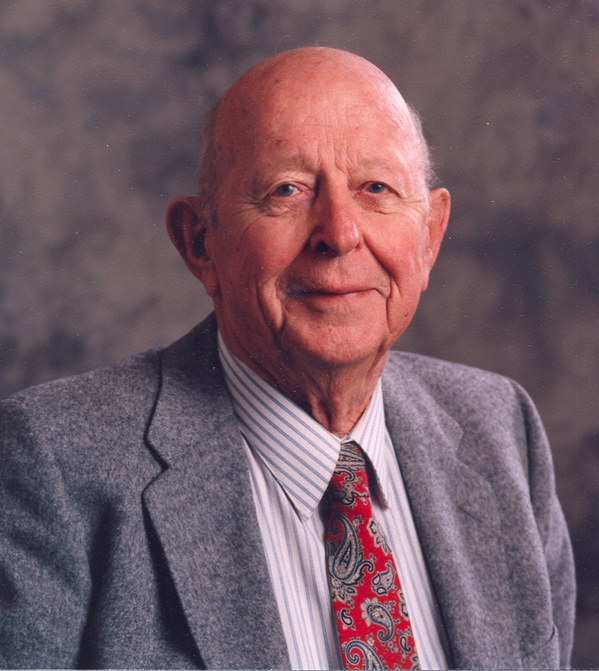
Dr. John S. Niederhauser
United states
September 27, 1916 - August 12, 2005
John Niederhauser of the Rockefeller Foundation and the International Potato Center in Peru became known as "Mr. Potato" for his research on Mexican wild potatoes. He discovered a way to breed potatoes with durable resistance to the "pootato late blight disease," which had been a global scourage since its outbreak in Ireland in the 1840s, thus increasing potato production globally.
Biography
John Niederhauser was best known in the scientific community for his research to control the late blight pathogen. He earned a Ph.D. in plant pathology from Cornell University in 1943 and taught there before moving to Mexico as a Rockefeller Foundation researcher to study wheat and corn pathogens in 1947. While there, he identified Mexico as the place of origin of late blight, which had been a global potato production problem for more than a century.
Locating resistance to the late blight disease in a Mexican wild potato species, Niederhauser and his colleagues began breeding for durable resistance in more than fourteen edible potato varieties from 1952 to 1956. The Mexican germplasm that he developed subsequently provided the sources of late blight resistance to potato breeding programs all over the world.
With this stronger and more flexible resistance bred into their plants, potato farmers came to rely less on expensive chemical fungicides. Subsistence farmers especially have been able to grow the potato in countries around the globe with greater certainty and less cost. Additionally, lower chemical usage rates have allowed producers to maintain environmental quality.
Under Niederhauser’s guidance, Mexico increased its potato production sixfold from 1950 to 1980. The country was able to reduce imports of seed potatoes from 15,000 tons per year in 1957 to near zero by 1962. As a result, per capita consumption of potatoes more than tripled in Mexico despite concurrent rapid population growth.
This research led Niederhauser to advocate breeding for horizontal resistance to plant pathogens, whereby multiple genes confer on the plant more flexibility and stability in withstanding diseases and fungi. Techniques promoting horizontal resistance have been successfully used in developing new potato varieties, and have also had important implications for more efficient production of other food crops in sustainable agriculture.
Working from Mexico, Niederhauser cooperated in developing strong national potato programs in other countries, including Pakistan, Bangladesh, Colombia, India, and Turkey. These countries more than doubled their potato acreage while simultaneously doubling or tripling productivity. As per capita potato consumption in these areas increased by nearly 100 percent over 30 years, families could choose from a wider variety of affordable sources of nutrition.
More than 180 scientists from national programs all over the world came to Mexico to learn potato production technology in the field, working with Niederhauser and his colleagues. To better organize international cooperation, he established the Inter-American Potato Program in 1961 and the International Potato Program in 1966 to allow scientists from many countries to collaborate in solving food production problems.
His international activities led to Niederhauser’s co-founding of the International Potato Center in Lima, Peru, in 1971. This center is well known for the basic characteristics adopted from Niederhauser’s preceding programs: modest headquarters; cooperation with qualified potato research institutions throughout the world; regionalization of activities to give strength and continuity to national program development; and the maintenance of a potato germplasm bank to provide a global pool of genetic material.
In 1978, Niederhauser similarly launched the Regional Cooperative Potato Program or PRECODEPA, involving programs from Mexico, Central America, Panama, and the Caribbean. PRECODEPA became renowned as a model for regional cooperation in agricultural production and research and was a key development strategy in the 1960s for technology transfer following establishment of research programs.
With The World Food Prize award he received in 1990, Niederhauser and his wife established the John and Ann Niederhauser Endowment Fund at the American Phytopathological Society to finance research on potato late blight as well as reward outstanding international service in plant pathology.
Niederhauser was honored by the governments of Peru, Panama, the Dominican Republic, and Mexico, and by institutions in Argentina, China, Costa Rica, Ecuador, the United States, Canada, Russia, and Poland. He received the first World Potato Congress Award in 1993 and a Recognition of Outstanding Contribution from the Global Initiative on Late Blight in 2002.
During his nearly 60 years in international agriculture, he became internationally known as “Mr. Potato” for his contributions as a researcher, educator, leader, and cooperator in potato development programs and for his innovations and achievements in providing food to the world.


